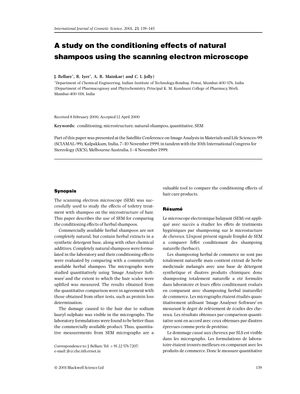A Study on the Conditioning Effects of Natural Shampoos Using the Scanning Electron Microscope
June 2001
in “
International Journal of Cosmetic Science
”

TLDR Natural shampoos made in the lab conditioned hair better than commercial ones with chemicals.
In a study from 2001, the scanning electron microscope (SEM) was used to evaluate the conditioning effects of laboratory-formulated natural shampoos compared to commercially available herbal shampoos. The commercial shampoos were found to contain herbal extracts mixed with synthetic detergents and other chemical additives, while the laboratory shampoos were completely natural. The hair's microstructure was analyzed quantitatively using Image Analyser Software, particularly looking at the extent of hair scale uplift. The results from the SEM analysis correlated with other tests, such as protein loss determination, and showed that the laboratory-formulated shampoos provided better conditioning effects than the commercial products. The study also noted visible damage to hair caused by sodium lauryl sulphate (SLS) in the commercial shampoos. This research concluded that SEM micrographs are a useful tool for comparing the conditioning effects of hair care products.




